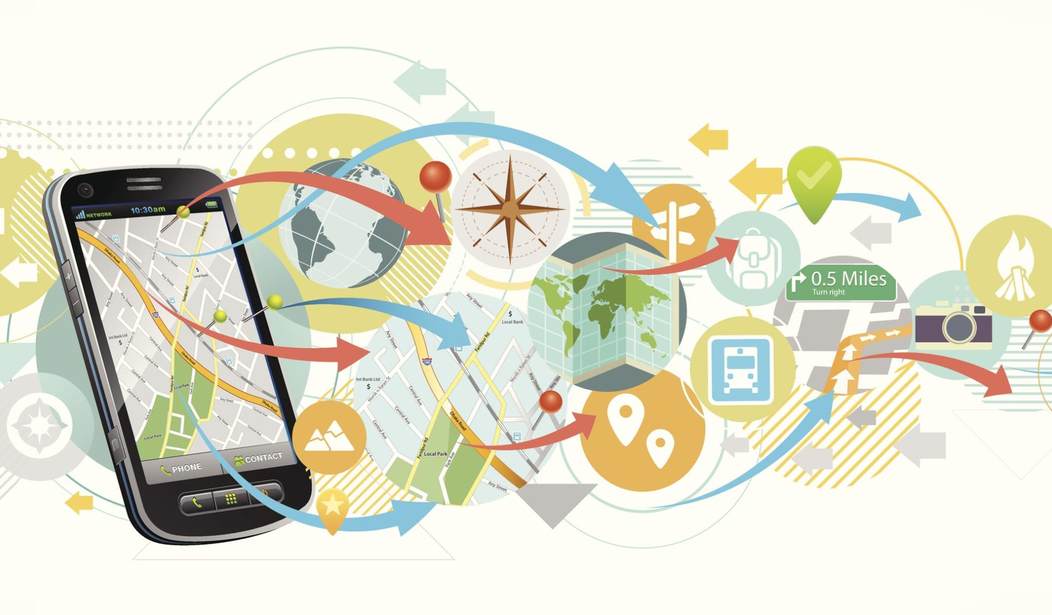In a revealing New York Times expose, an investigation revealed that hundreds of apps are tracking our every move, many without asking permission or explaining what they are doing with the information. They know exactly where we are and where we have been at almost any moment in time.
It’s a broad surveillance effort, affecting over 200 million Americans, designed to gather more personal data and sell it to corporations, including advertisers, banks, insurance companies, health providers, and retailers. IBM, for example, is one of the key players in this industry. Examples in the article include apps tracking people into hospital operating rooms, school classrooms, and doctor’s offices, with each individual being tracked thousands of times per day. While many in the industry claim the information is anonymous, it doesn’t take much effort to connect a residence or office to its occupants.
While we expect to be tracked by such apps as Google Maps and Lyft, what it was revealing to learn how many other apps are doing it — apps that have no need to know our location for them to function. Tracking is simply being added to the app as a way to generate revenue.
It’s a good bet that you’re being tracked right now. When I checked my phone I found numerous apps tracking me that have no need to know where I am. They include games, news sites, credit card companies, and travel sites, with many of them doing it even when the app is not being used.
What can you do to avoid being tracked? You can turn off the tracking by these apps or reduce the amount of tracking. You have more control over iOS phones, but you can make changes to Android phones as well. Another benefit to reduced tracking is that it reduces battery usage.
Note that you can’t rely on the apps being upfront and telling you that they are tracking you unless you want to get into the detailed agreements. Even if you make the effort to read all the fine print, many don’t disclose it clearly, and when they do, they’re evasive and don’t always tell you what they do with the information.
Here’s how to determine who’s tracking you and how to avoid it:
For iOS (iPhones and iPads):
Open Settings, then scroll down and select the Privacy option. Then select Location Services. You have the option of turning off all Location Services, which prevents all tracking. That way, you can turn it on only when you use an app that requires it. But many find that process to be inconvenient. Fortunately, Apple offers three options for turning on tracking for each app: “Never,” “While Using the App,” and “Always.”
Take the time to go through each app on the list and select one of the three options. Choose “Never” if the app has no obvious need to know your location and “While using the App” if the app needs your location to function (such as Waze or Lyft). There rarely is a need for an app to always know your location. There certainly is no need for apps such as GasBuddy or WeatherBug — two of the most notorious trackers — to know where you are. You can always enter your location manually if needed. While going through the list, identify the apps you no longer use and delete them from your phone.
If you use an Android phone, follow these steps:
Open Settings and select Security & Location. Tap Location, which is in the Privacy section, then select App-level Permissions. You’ll see a list of apps. To turn off location tracking for an app, slide the toggle to the left. Android phones don’t allow you to restrict an app’s access to your location only when you’re using the app. With Android, apps that have your permission to track your location also track you when you’re not using them. In some newer versions of Android, according to Google, tracking can be limited to “a few times an hour.” Thanks, Google!
What about past tracking information?
Unfortunately, there’s no way you can delete past tracking information from the apps’ databases. It ’s impossible to even identify who has your data, and under current U.S. laws, the companies have no requirement to inform you about what they’ve collected. The EU, unlike the U.S., gives users the legal right to request a copy of the data that companies retain on them and to request that it be deleted. Our best hope is that our government will eventually adopt similar laws.
There are also numerous other settings and methods you can change on your desktop computer and phone to reduce location tracking, including turning on privacy settings in Google and other apps and using anonymizing and VPN software to provide anonymity while on the internet. But the industry has latched onto the phone as the best way of tracking us because it’s with us most of the time, working just like a tracker implanted on us, telling anyone who is willing to pay exactly where we are at any moment in time. And with the advances in artificial intelligence, it’s a small step to using this data to determine exactly what we are doing as well.









Join the conversation as a VIP Member